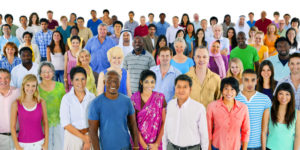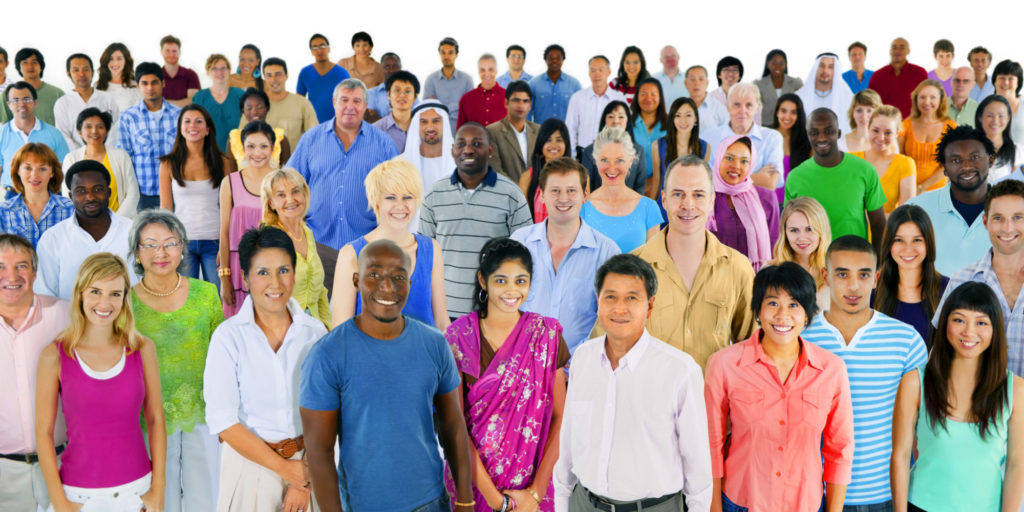Can Transgender People Be Baha’is?

We get some intriguing inquiries here at BahaiTeachings.org, including one from a reader last week: Can trans people be Baha’is?
Here’s the actual question we received: “Hello. I am transgender and have been looking into the Baha’i religion for several months now—almost a year. I know that there is gender equality, but how do Baha’i people see transgender people like me? I don’t want to be part of a religious group who hates me for existing… (If that makes sense.)”
As I thought about how to answer that question, it reminded me of the cousin of a lifelong friend. Born when I was a teenager, the baby I’ll refer to as Bob (not his real name) had what were then euphemistically called “birth defects.” Later I learned that he had been born genetically ambiguous, with genitals from both genders. At the time, physicians gave him a label we now think of as a slur: “hermaphrodite.”
At birth, Bob’s parents were faced with a tough, flip-a-coin choice: doctors said they had to decide, immediately, which gender they wanted their child to be. The parents agonized over the choice, finally decided, and the doctors surgically gave him the physical characteristics of a boy within a few months after his birth.
 But as he grew up, despite the large doses of male hormones his physicians prescribed, he didn’t feel, act or identify as a boy at all. Even as a child, he thought of himself as female; and his parents blamed themselves for making the wrong choice. Bob’s teenage years, as you might imagine, were really difficult. Finally, as an adult, Bob became Bobbi, after undergoing four years of counseling and a difficult surgical reassignment to the gender where she had always felt she belonged.
But as he grew up, despite the large doses of male hormones his physicians prescribed, he didn’t feel, act or identify as a boy at all. Even as a child, he thought of himself as female; and his parents blamed themselves for making the wrong choice. Bob’s teenage years, as you might imagine, were really difficult. Finally, as an adult, Bob became Bobbi, after undergoing four years of counseling and a difficult surgical reassignment to the gender where she had always felt she belonged.
The more modern word for Bobbi’s medical condition at birth, intersex, means having a body that doesn’t fit the typical definitions for male or female. Intersexed people often have genetic variations that depart from the typical XY chromosome that usually defines a male, or the typical XX chromosome that usually defines a female. Many variations exist, and researchers have estimated that 1.7% of all human births will have intersex variations, many not immediately obvious at birth.
Science has just begun to understand intersexed people, and human rights law is still struggling to catch up with the science. The UN High Commissioner for Human Rights now defines intersex this way:
Intersex people are born with sex characteristics (including genitals, gonads and chromosome patterns) that do not fit typical binary notions of male or female bodies.
Intersex is an umbrella term used to describe a wide range of natural bodily variations. In some cases, intersex traits are visible at birth while in others, they are not apparent until puberty. Some chromosomal intersex variations may not be physically apparent at all. – United Nations Office of the High Commissioner for Human Rights, October 24, 2016.
I learned something because of Bobbi’s hard path through this physical existence. Transgender people—especially those who undergo surgical gender reassignment as adults—felt as if they were imprisoned in the wrong gender role their entire lives. In the bad old days, before science began to properly recognize and develop the capacity to medically intervene to help intersexed people, self-hatred, self-abuse and suicide were common. Today, luckily, some of the attitudes toward transgendered people are changing.
But back to the original question: How do Baha’is see transgender people? First of all, Baha’is view all people with a universal vision of love and acceptance:
Inasmuch as God is loving, why should we be unjust and unkind? As God manifests loyalty and mercy, why should we show forth enmity and hatred? Surely the divine policy is more perfect than human plan and theory; for no matter how wise and sagacious man may become, he can never attain a policy that is superior to the policy of God. Therefore, we must emulate the attitude of God, love all people, be just and kind to every human creature. – Abdu’l-Baha, The Promulgation of Universal Peace, p. 174.
In terms of our reader’s specific question, though, the global, democratically-elected Baha’i administrative body—the Universal House of Justice—determined long ago that transgender/transsexual gender reassignment should be a private decision entirely left up to the individual and medical experts:
The House of Justice has not found any text in the Baha’i writings which deals explicitly with the subjects of transsexuality or surgical operations carried out to change sex or to establish a single sex. It has decided that changes of sex or attempts to change sex should, at the present time, be considered medical questions on which advice and guidance should be sought from experts in that field. – August 1983.
Because Baha’is firmly believe in the basic principle of the agreement of science and religion; and because this gentle guidance from the Universal House of Justice advises Baha’is to treat transgender issues as purely medical questions; and also because Bobbi ultimately became a Baha’i who her community accepted and loved; I think it’s safe to say that no one in the Baha’i community, dear reader, will “hate you for existing.” Baha’is aren’t perfect—all people are prone to prejudices and preconceived notions—but Abdu’l-Baha set the true Baha’i standard when he said:
Just as God loves all and is kind to all, so must we really love and be kind to everybody. We must consider none bad, none worthy of detestation, no one as an enemy. We must love all; nay, we must consider everyone as related to us …. – The Promulgation of Universal Peace, p. 267.

